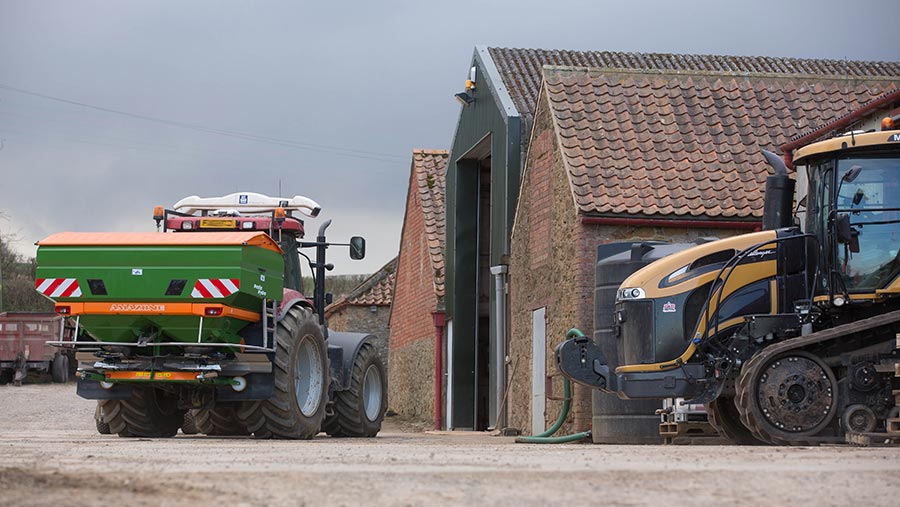University develops new approach to farm safety training
 Situation awareness is a central part of the non-technical training © Tim Scrivener
Situation awareness is a central part of the non-technical training © Tim Scrivener A training course that teaches farmers about situation awareness, decision-making and communication is being developed as a new approach to tackle the industry’s poor safety record.
Researchers at the University of Aberdeen and training provider Kura Human Factors have teamed up to look at how these non-technical skills, which are mandatory in other high-risk industries such as aviation, can be applied to agriculture.
See also: Safe farms, safe staff and visitors – a guide to legislation
The university has also created free tools for farmers, based on research conducted with people working in agriculture, to help them stay safe at work.
These include a pocket guide on safety skills and tips, and a tractor situation awareness checklist which has also been made into a phone app.
Dr Amy Irwin, from the university’s NTSAg research team, said: “We are currently the only research team that I know of examining these skills in farming and this represents a new approach to farmer safety and one we hope will have substantial impact on farmer fatality and injury rates.
“Non-technical skills fall into two categories – cognitive thinking skills such as decision-making and situation awareness, and social interaction skills such as teamwork and communication.
“Our research over the years has found that these skills, in conjunction with technical know-how, are key to ensuring safe and effective performance at work.”
The training will also cover stress, fatigue management and wellbeing.
Long overdue
Kura director Niven Phoenix said an evidence-based non-technical skills course for agricultural workers was long overdue.
“The advent of technology in farming has been astounding with systems and hardware that has advanced out of sync with the training required to manage the increased risk presented,” he said.
“We have already seen parallels with our work in the construction industry. It is beset by similar problems that are now being addressed with effective understanding of human fallibility and how we can build systems and processes but more importantly behaviours that protect livelihood, life and limb.”
